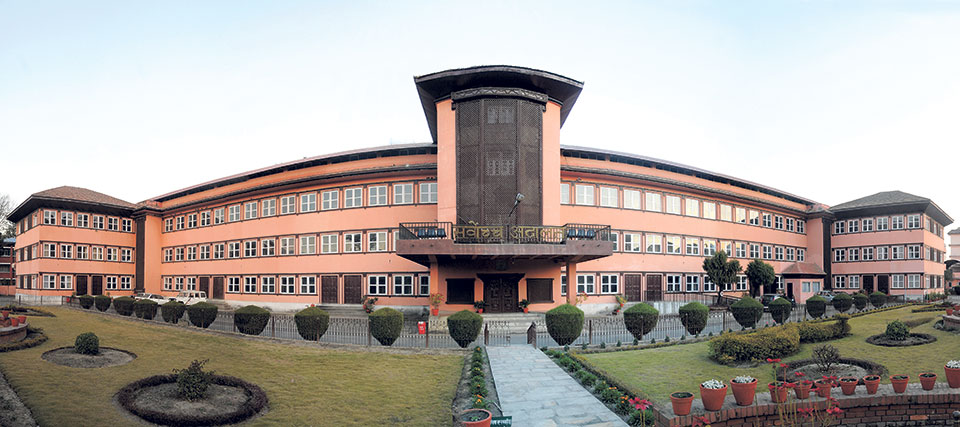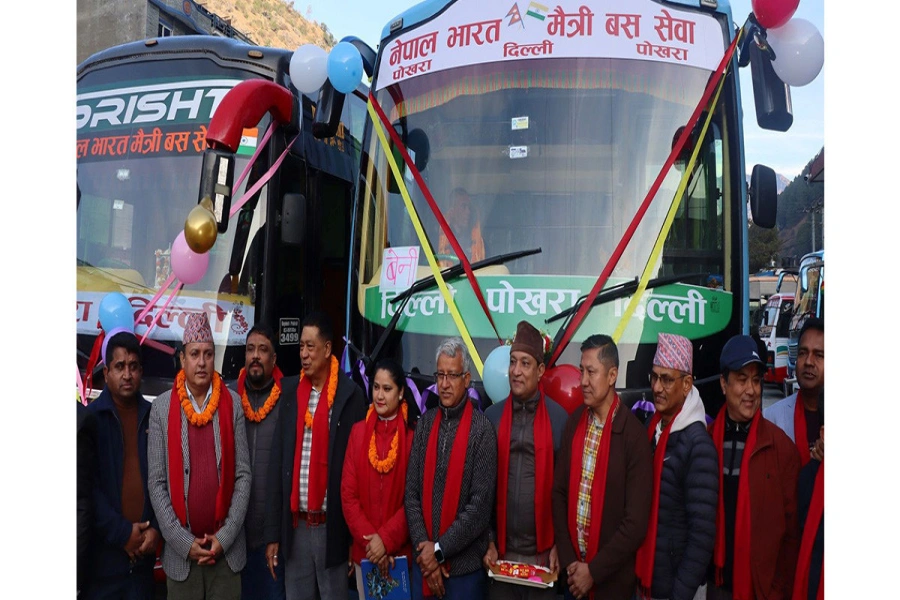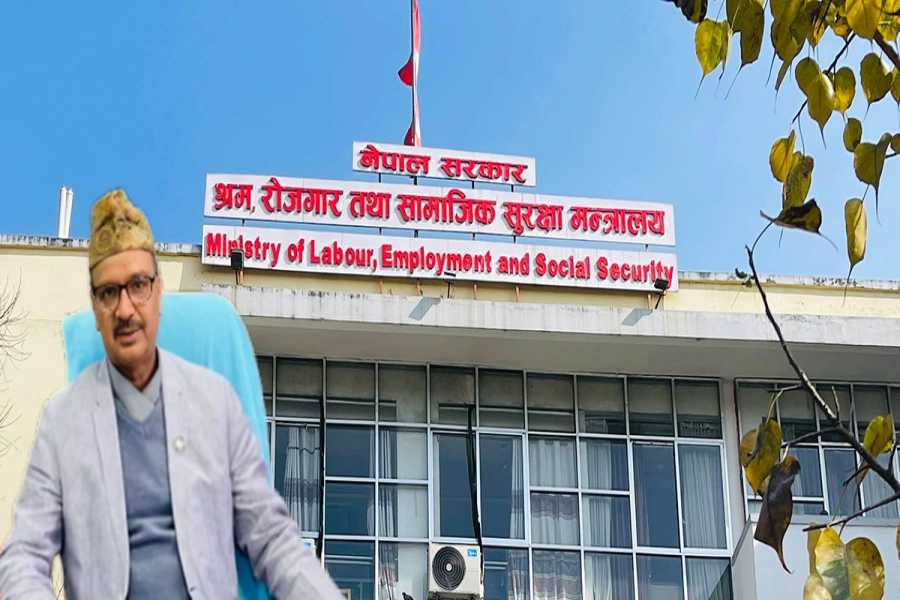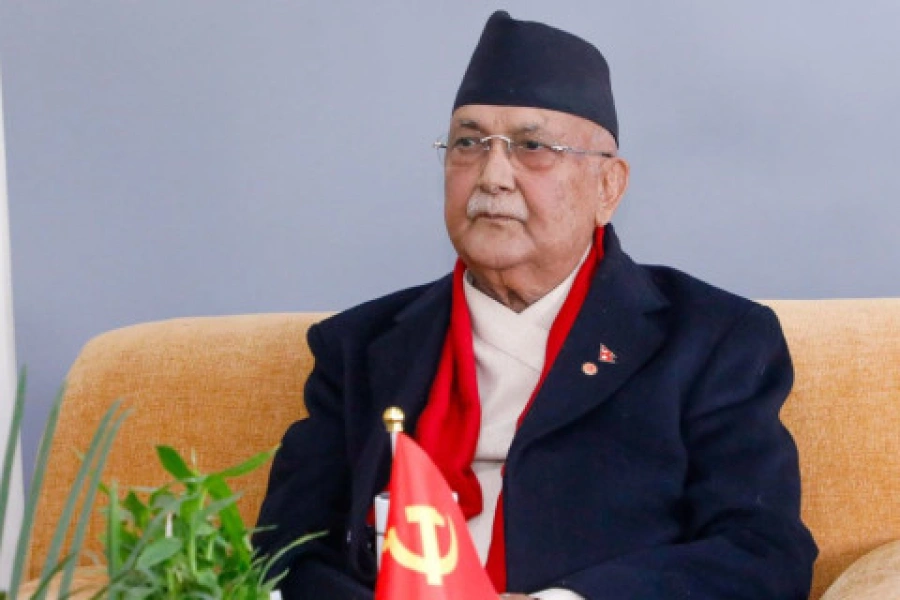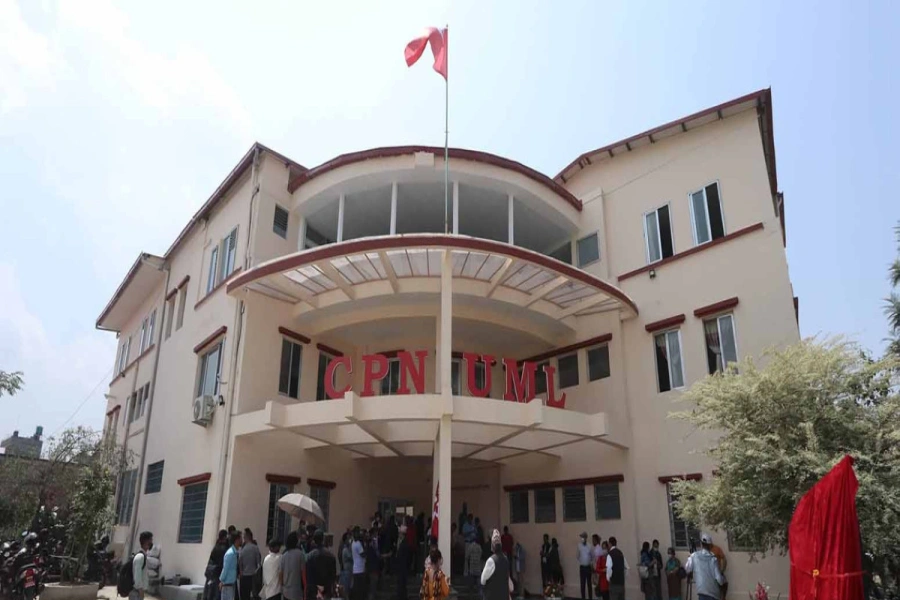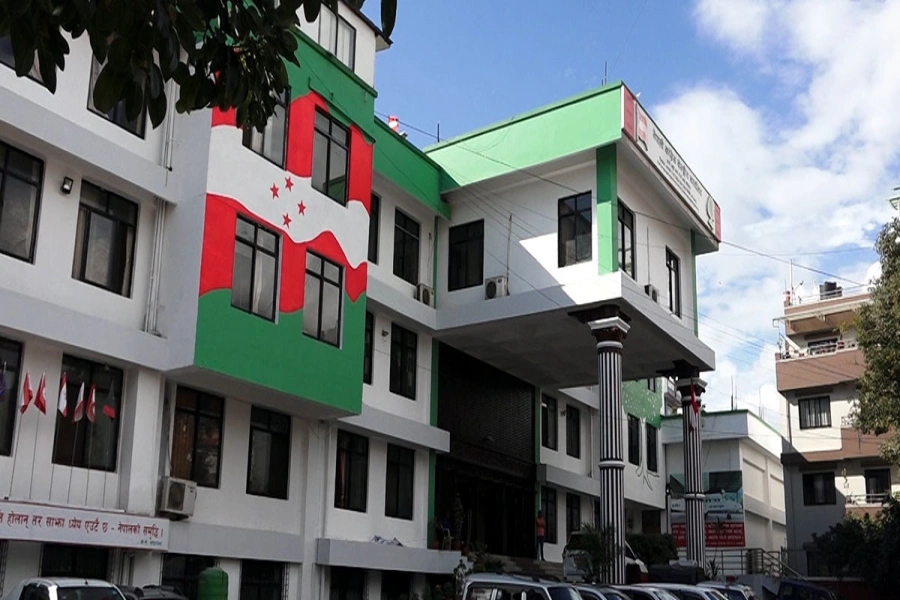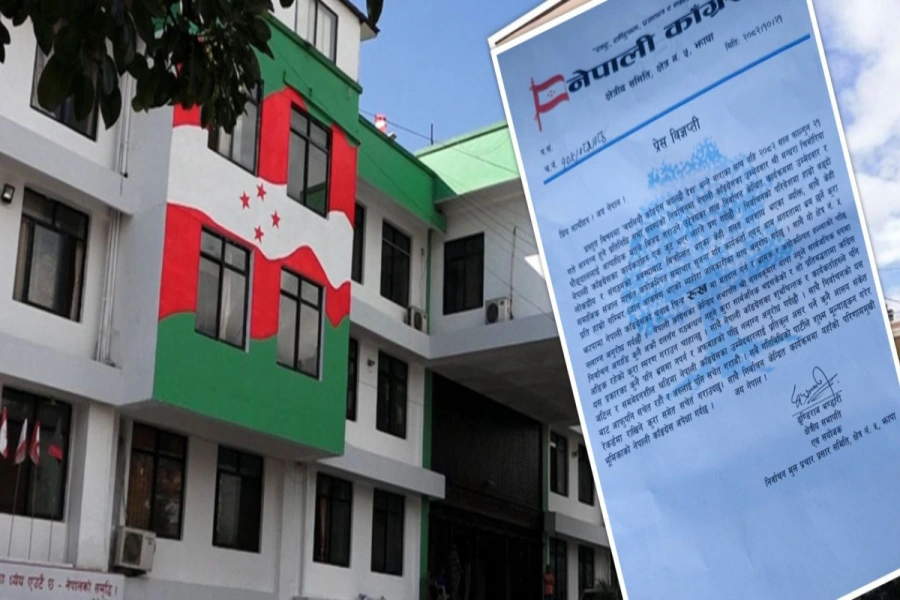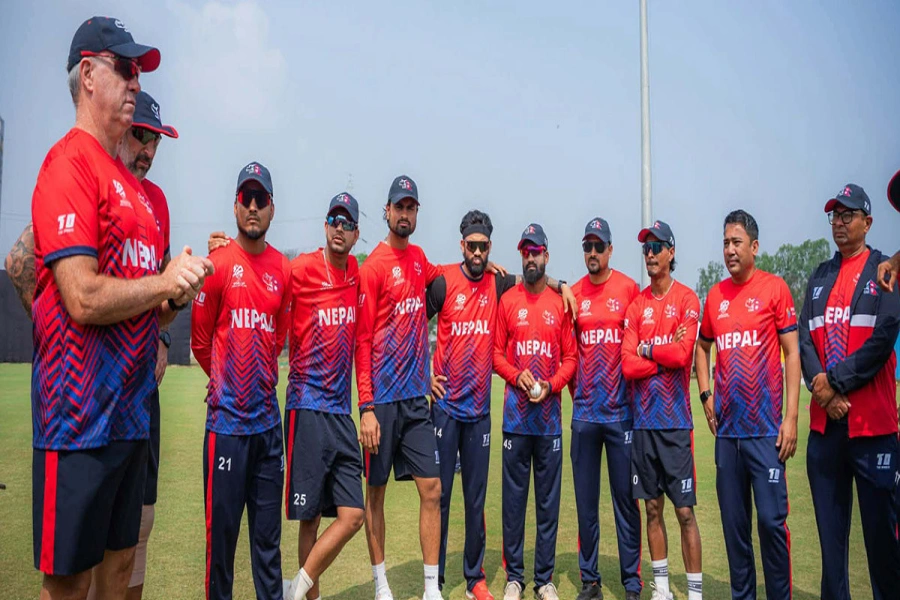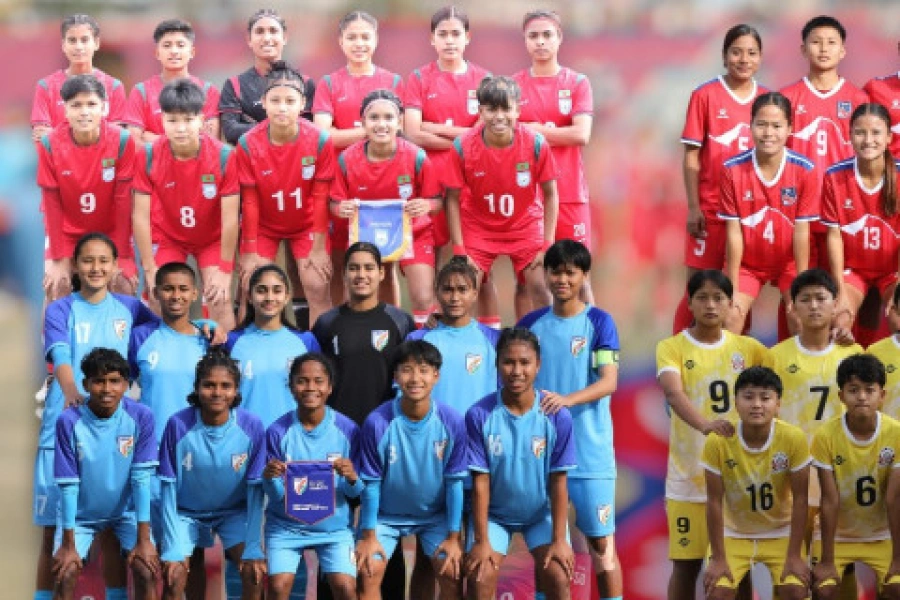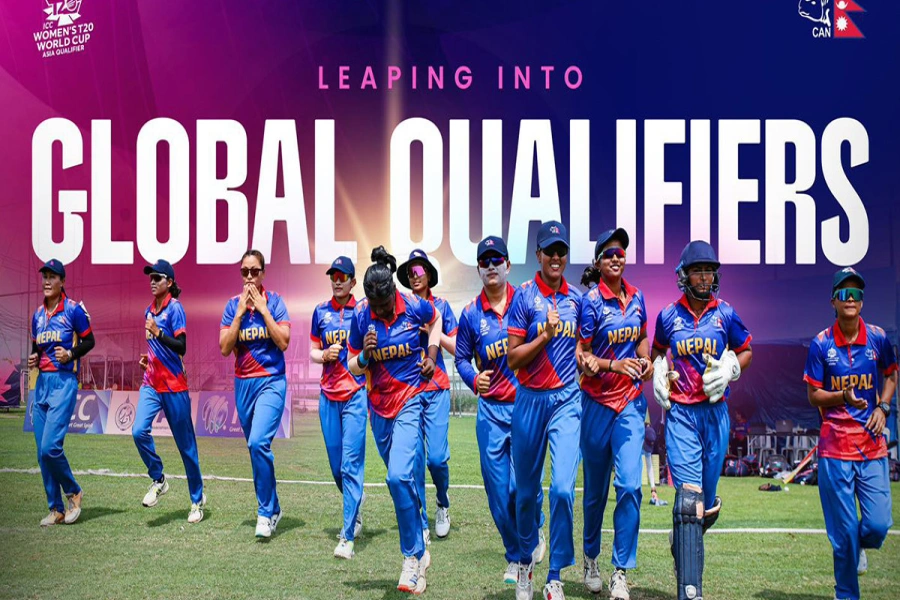KATHMANDU, July 10: The Supreme Court (SC) has ruled that one government entity cannot file a case against another. A joint bench of Justices Hari Prasad Phuyal and Balkrishna Dhakal clarified that fundamental rights pertain solely to citizens and issued an order to refer disputes involving government entities to the Chief Secretary if legal rights are violated.
The Rail, Metro Rail, and Monorail Development Project under the Ministry of Physical Infrastructure and Transport filed a writ petition against the Public Procurement Review Committee at the SC in 2075 BS. The Supreme Court dismissed the writ petition on January 22, 2024. The full text of the dismissal of the writ petition by the SC has recently been made public.
The Public Procurement Review Committee issued a tender invitation notice on October 12, 2018. Following this, a writ petition was filed seeking to annul the decision made by the Committee on March 29, 2019, which allowed direct inclusion of bidders, citing it as unlawful and in violation of constitutional and legal rights. After the writ petition was filed, a debate ensued on whether one government entity can file a writ petition against another government agency.
The SC dismissed the writ petition and emphasized that the fundamental rights of state authorities as Nepali citizens should not be violated. The SC stated that writ petitions filed where the state acts as both petitioner and respondent generally contradict the principles of writ petition and the recognition of fundamental rights. The SC clarified that the encroachment upon the fundamental rights, freedoms, and liberties of citizens by state departments or agencies cannot be justified as part of the state's own rights and duties.
6 men file for divorce in Okhaldhunga

According to the Supreme Court, in cases between two government bodies under extraordinary jurisdiction, even government lawyers from the Office of the Attorney General, who represent them and defend the case in court, may question which side they will represent.
The Supreme Court has ruled that if there is a dispute between two government departments or agencies, leading to the filing of a writ petition, and the Attorney General serves as the legal counsel for both parties, it raises concerns about a potential conflict of interest. According to Article 158 of the Constitution, the Attorney General is designated as the chief legal advisor to the government.
In general, the constitution and laws of Nepal do not anticipate resolving disputes between government agencies or departments using the extraordinary jurisdiction of the court. It is found that the role of the Attorney General and public prosecutors defending government agencies or departments differs from practices observed in India.
In India, there is a practice to involve private lawyers alongside government attorneys when a public department or agency files a case against another department or agency. However, in Nepal, such practice is seen only as an exception to the rule. The constitution and laws have been interpreted to allow any entity or individual, apart from the state, to file a writ petition against a government department or agency based on circumstances.
The writ petition was not filed by the state's authority, but rather by one party to the contract. The SC stated, "The filing of a writ petition by one government body against another using the state's authority is deemed an abuse of writ jurisdiction." According to the Supreme Court, "The practice of one ministry, department, or body under the same government filing a writ petition against another ministry, department, or body of the same government is not considered a healthy practice according to the principles of writ jurisdiction."
Basically, government departments or bodies are not considered to have any constitutional, legal, or fundamental rights. They are perceived to have constitutional, legal authority, responsibilities, duties, and accountability. The Supreme Court explains that a government body cannot approach any court against any other government entity, accusing it of intervening in its jurisdiction or taking action or working without its consent.
The allocation of government responsibilities, adherence to performance regulations, and the resolution of disputes are matters for the government to handle internally. According to the Supreme Court, such matters are not suitable for court intervention and adjudication. The fundamental rights enshrined in the constitution are guarantees provided to citizens and legal entities. Fundamental and legal rights are essential rights granted to citizens or legal entities against the state. It does not seem appropriate that such rights are extended to state entities that do not possess a legal personality.
The constitution does not provide for the use of writ jurisdiction to settle disputes between state agencies. State agencies do not possess the same fundamental rights as Nepali citizens. Therefore, it has been established that such bodies cannot file a case claiming that their fundamental rights have been violated.


